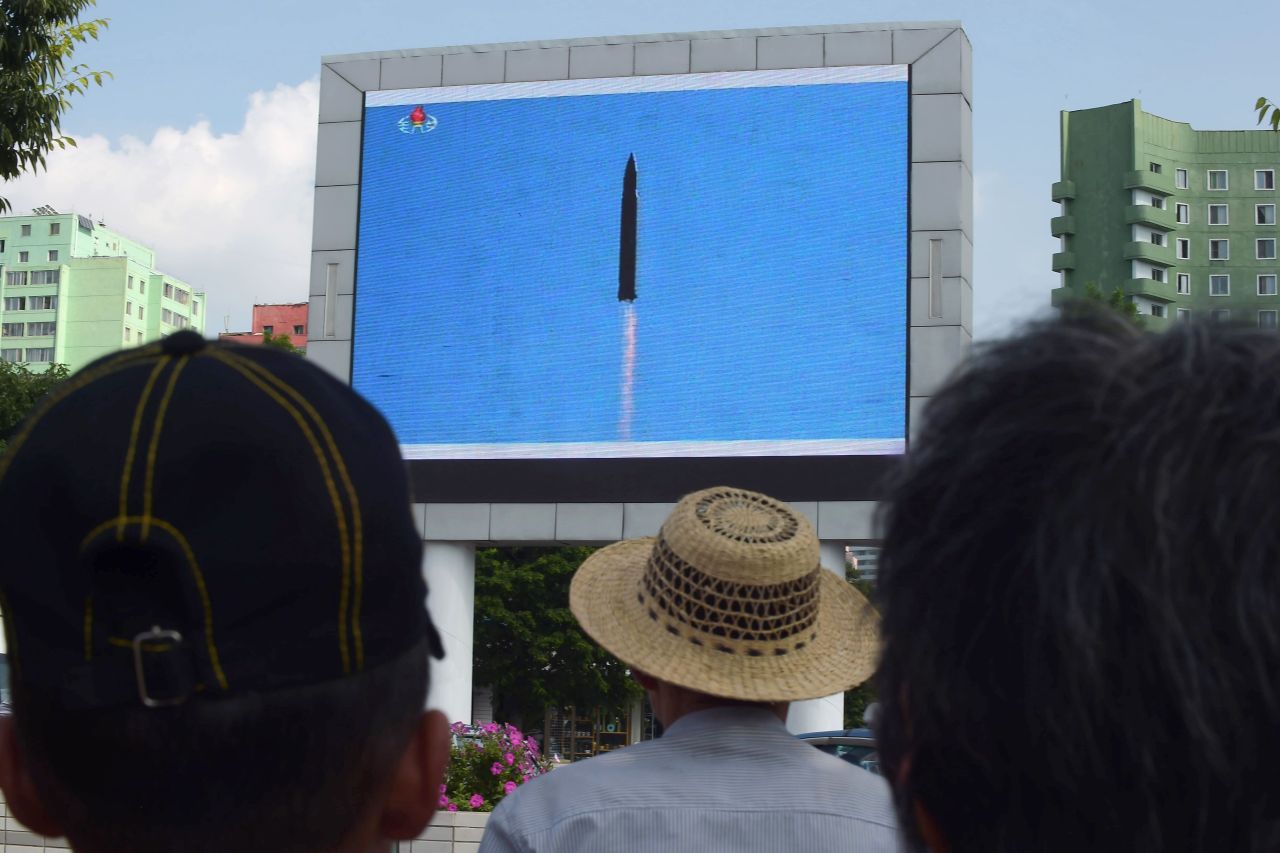Some 23,000 North Korea workers abroad have been repatriated in the last two years under a UN sanctions resolution adopted in 2017, according to data from a UN panel monitoring sanctions implementation that was released Thursday.
The resolution adopted by the UN Security Council in December 2017 calls for the repatriation of all North Korean workers by the end of this year to stop them from earning foreign currency that could be funneled into the regime’s missile and nuclear programs.
 |
In this file photo taken on July 4, 2017, Pyongyang residents watch the news on the successful launch of the intercontinental ballistic missile "Hwasong-14." (AFP-Yonhap) |
Based on interim sanctions implementation reports submitted by 47 member countries to the council as of Dec. 6, Russia has sent back the largest number of North Korean nationals with valid work permits. The figure declined to 11,490 workers as of Dec. 31, 2018 from 30,023 workers in 2017.
Russia and China host the lion’s share of North Korean foreign laborers. The US has said it believed Pyongyang was earning more than $500 million a year from nearly 100,000 workers abroad, of which some 50,000 were in China and 30,000 in Russia.
On Tuesday, US Secretary of State Mike Pompeo expressed hope that Moscow would repatriate all North Korean workers by the UN-mandated deadline of Dec. 22.
“There are many North Korean workers in Russia. The UNSC resolution requires them to depart. We’re hopeful they’ll be able to complete that and come into full compliance with that.”
The number of North Koreans who work in China was not included in the total figure as the country has submitted a report on its sanctions implementation without disclosing figures.
Kuwait reported that it sent back 904 North Koreans, which represented more than half of the total North Korean workers there. Qatar also sent back about 2,500 North Koreans.
“Given that approximately 100,000 North Korean workers have been dispatched overseas, repatriation of 20,000 people is not enough,” said Kim Byung-yeon, an economics professor at Seoul National University.
China and Russia appear to have been violating rules to allow the North Korean workers to stay by issuing them student or short-term visit visas.
“Counting how many people returned home is important, but it is more important to forbid such disguised employment,” Kim said.
Money sent home by workers is the second-largest source of foreign currency for North Korea, followed by exports of mineral resources.
As a way to offset shortages of foreign currency that could occur following the mass repatriation of workers, North Korea has been focusing on developing its tourism industry, which is excluded from sanctions the UN imposed on the regime.
By Park Han-na (
hnpark@heraldcorp.com)





![[Herald Interview] 'Trump will use tariffs as first line of defense for American manufacturing'](http://res.heraldm.com/phpwas/restmb_idxmake.php?idx=644&simg=/content/image/2024/11/26/20241126050017_0.jpg)


